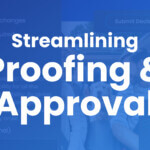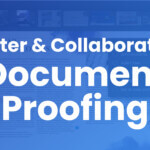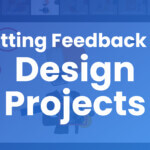There are many reasons we read. Entertainment, education, escape, research, self-improvement, and so many more. Regardless of what and why you’re reading, knowing how to read productively has significant benefits for your general knowledge and output.
Being a productive reader is about more than just volume, speed, and bulldozing through the unread section of your bookshelf. It’s much more about quality than quantity.
The Meaning of Being a Productive Reader
Along with the importance of reading more books and the benefits of reading more often, the way we read matters.
Some of us would proudly call ourselves “well-read”, but can we truly say we’ve benefited from every book that’s graced our nightstands? Depending on the genre, the average book has between 70,000 and 90,000 words. That’s a lot to take in – and retain.
Productive reading habits mean knowing how to absorb ideas, which includes learning, questioning, consideration, and recall.
A productive reader knows how to read critically and with intention. Effective reading habits allow you to absorb the information and knowledge contained within the pages so that when you reach the last page, you’ve done more than just finish a book.
8 Ways to Be a More Productive Reader
Here are a few ways you can increase your efficiency while reading to become a more productive reader.
1. Read Slower
We’re obsessed with reading faster. There are endless tools and tactics for increasing your WPM. It’s worth thinking about slowing down. While decreasing your reading speed may sound counterintuitive, slowing down as you read can actually help you be more intentional about your reading.
Taking the time to absorb the material and information will let you read more productively. You won’t be flipping back through previous sections to better understand the content. The ideas will sink in properly the first time around.
2. Read Critically
Reading productively also means engaging with a critical mindset and thinking carefully about what you’re reading. Do you agree with what you’re reading? Why or why not?
It’s okay to disagree with the author or the concepts you read in a book. In fact, when you are disagreeing with an author, you are thinking critically about the content.
Thinking about the ideas you read with an open mind is important, but so is knowing yourself enough to identify which ideas work for you and which do not.
3. Take Notes
We’re definitely not condoning marking up the margins (at least not in library books), but having a notepad handy to take notes while reading can help you remember the important points. At least those that connect with you.
Richard Branson, for example, has shared that his note-taking habit is an indispensable practice in his routine. The Virgin Group founder uses his “idea book” to keep track of ideas he reads or hears about.
Part of being a productive reader involves practicing comprehension. Note-taking while reading helps you to effectively engage with the ideas as well as retain and better understand key concepts.
Virtual reading with ebooks and audiobooks are great ways to digitally annotate and highlight passages you think are important. Apps like Google Books and Amazon Kindle allow you to bookmark or take notes directly in the ebook.
4. Practice Focus
It’s impossible to fully benefit from the book you’re reading if you’re not able to focus. Finding the focus and concentration to sit down and read a book cover to cover (or even a chapter) isn’t always easy. Underlying factors such as stress, ADHD, and fatigue can contribute to difficulties concentrating while reading. For many of us. however, finding deeper focus while reading can simply be a matter of practicing – and in turn, increasing your concentration abilities.
To practice better focus while reading, set yourself up for success with a comfortable, distraction-free reading space. Find the time of day that works best for you. And definitely eliminate the distraction of electronic devices.
General strategies that help increase focus will also help your focused reading, such as playing relaxing music, staying hydrated, and of course, staying on topics that spark your interest (and keep you in a state of flow).
5. Pick The Right Books
When choosing a book to read, it’s a good idea to understand your purpose for your pick. To build a better reading habit, focus on figuring out what it is you like to read and how you like to read.
First, is the book for “business” or “pleasure”? Secondly, ask yourself if it’s a title that everyone is raving about or content you honestly want to consume. Just because Oprah, Obama, and Gates all gave it 5 stars doesn’t mean it will be worth your time.
A study showed that 27.9% of readers will be up to 100 pages into a book before admitting it’s not for them. And only 15% of readers abandon a book in fewer than 50 pages. That’s a lot of time wasted on something that’s not for you.
So, don’t be afraid of putting down books that aren’t interesting or relevant to your goals.
6. Engage With Community
Sharing your reads with work colleagues, friends, or an online community can help you engage with the material on a deeper level.
Discussing the concepts you’ve read and enjoyed (or disagreed with) helps the ideas and key concepts stick. You’ll likely discover ideas that you couldn’t on your own.
Engaging in a reading community can also help you add books to your must-read list that benefit your goals and fit into (or maybe even disrupt – in a good way) your flow.
7. Discover and Explore Context
Want to better understand what you’re reading? A good way to increase reading comprehension of any subject is to add in social and historical context. Research the author online and read the author or editor’s foot or end notes. Learn about the inspiration for the book.
Discovering what experiences brought the author to their ideas or conclusions can help you determine if it’s something you should take at face value or with a non-obvious level of profundity.
8. Reflect and Consider
After learning how to think critically about what you’ve read, you should also take the time to consider those thoughts and the author’s ideas. If you have notes after reading a book, read through them and carefully consider what you’ve taken in.
Practice taking 15 minutes post-read to think about the book. What was the most memorable part? Why did you like and dislike it? Leaving your thoughts on a site like Goodreads not only might help others decide whether they’d like a book but helps crystalize your own reflections.
Taking the time to reflect and consider after reading a book will not only help you remember what you’ve read but decide if and how you’d like to apply those philosophies or concepts in your own life.

Why Reading Productively Helps You Grow
Being a productive reader isn’t all about reading as many books as possible. It’s about learning how to absorb and retain what you’re reading, think critically about the concepts, and decide which ideas you want to implement into your own life.
Knowing how to read with intention and how to retain important information is a skill that will inevitably further your goals and career.
Reading one book that benefits your goals and it with comprehension and contemplation is far more valuable than reading a hundred books that don’t add value to your life.
As Steve Jobs put it: “One home run is much better than two doubles.”






